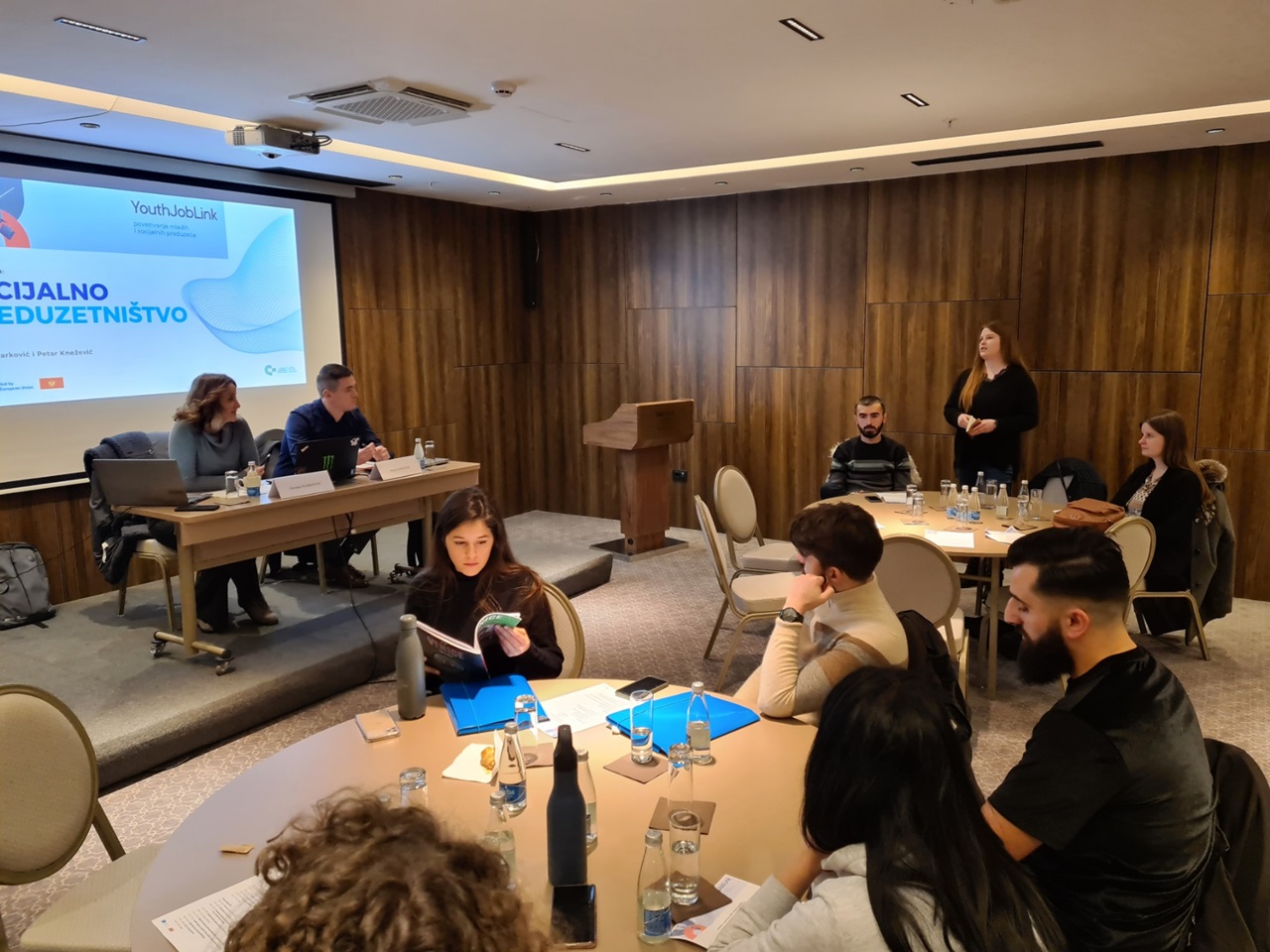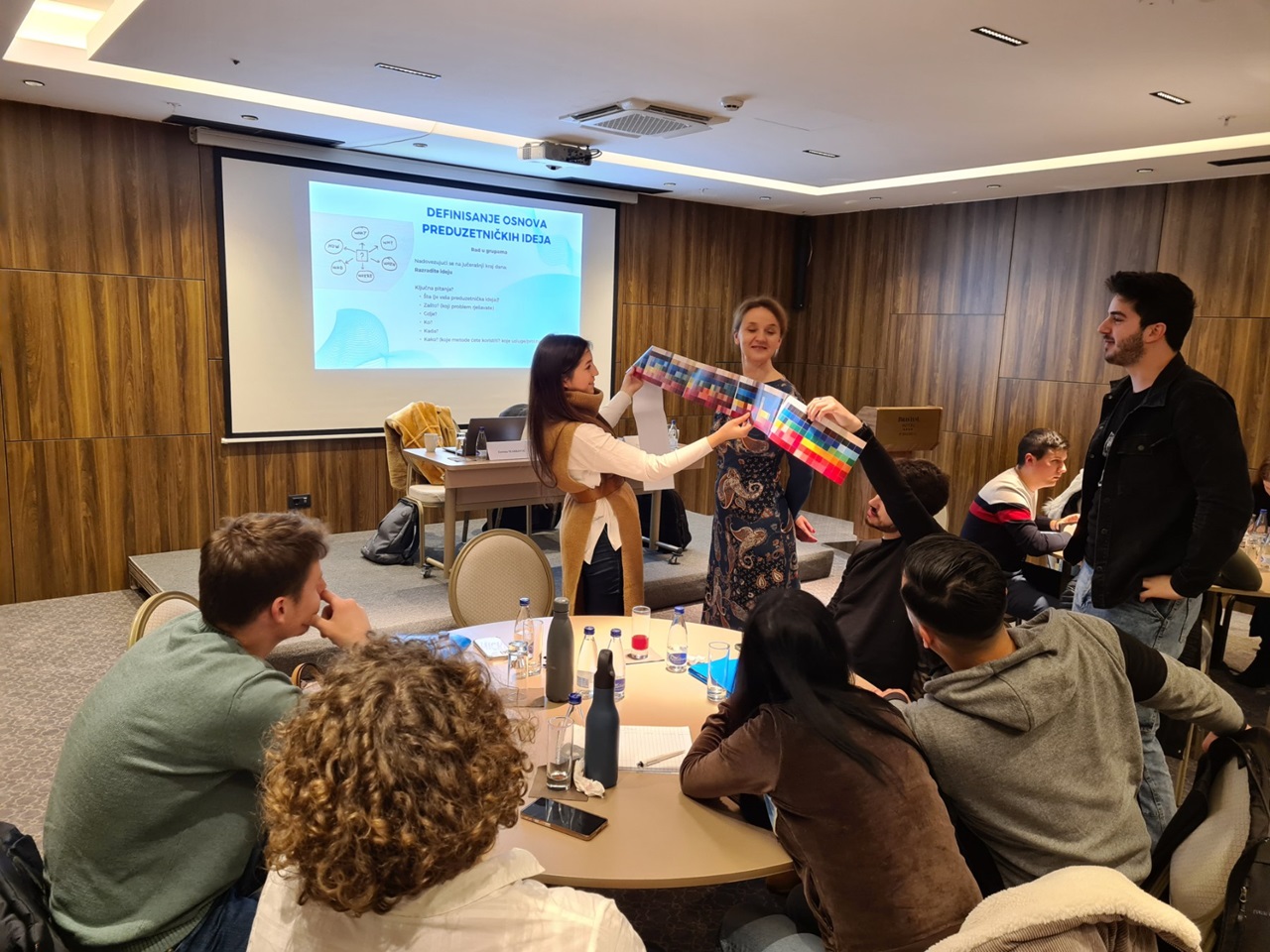Centre for Civic Education (CCE) organized, from 15 to 17 January 2024, in Podgorica, the third module of the capacity-building programme for youth on social entrepreneurship. This programme is part of the YouthJobLink project – linking youth and social enterprises, implemented by the CCE with the support of the European Union through the Directorate for Finance and Contracting of EU Assistance Funds (CFCU) of the Ministry of Finance of the Government of Montenegro, aiming to enhance the competitiveness of youth in the labour market and improve their employability. The programme includes three modules, followed by the employment of ten selected young people for a duration of six months.
Social entrepreneurship is not legally defined in Montenegro, although in practice several social enterprises operate. That concept has the humane goal of addressing social problems and challenges that are not adequately addressed by competent institutions. Young people are not sufficiently familiar with the concept of social entrepreneurship and its connection with human rights, but also with the potential it has for sustainable social development. Therefore, this training was an opportunity for them to be informed about it. A special dimension of the training, but also an added value, is the development of entrepreneurial and business ideas by the programme participants.
“Given the numerous benefits of social entrepreneurship, which include solving the biggest social, environmental, and other problems, the promotion of this concept among young people has the potential to empower them to contribute to concrete changes in Montenegro, especially through their self-employment and social engagement”, states Zorana Marković, executive director of the Centre for Development of Non-Governmental Organizations (CRNVO) and trainer at the seminar.
“Social entrepreneurship represents, according to the EU’s position, the business model of the 21st century. Today, when too much focus is placed on profit for the sake of personal interest, social entrepreneurship gives us a model in which we use profits for the sake of the common good, as well as practices that will contribute to the protection of the rights of the most vulnerable categories of citizens,” recalls Petar Knežević, project coordinator at CRNVO, and one of the trainers. “Acquainting youth in Montenegro with this concept can lead to a contribution to common social goals through the enthusiasm and creativity that characterize youth”, concludes Knežević.
“It was a great pleasure and privilege to participate in the training on social entrepreneurship. It is a privilege for the reason that generally little is known about this topic in Montenegro, and by attending the training I joined that smaller group of those who know about it and I gained skills about social entrepreneurship,” Miljan Mihailović, a twenty-two-year-old from Bijelo Polje, a training participant, shares his impressions. “Young people should have skills in social entrepreneurship because in that way they can recognize which organization is really a social enterprise. Unfortunately, in Montenegro, a large number of organizations present themselves as social enterprises, but in the end, it turns out not to be so. Another reason why they should have social entrepreneurship skills is that by having these skills, they can potentially establish their own social enterprise,” emphasized Mihailović.
“Social entrepreneurship has a special importance for youth because it gives them the opportunity to use their innovation and start their own business that serves the common good, and in addition, through various calls and funds they are offered financial help for this,” points out Lorena Ujkić, a twenty-one-year-old from Tuzi, and a training participant. “In addition, social entrepreneurship contributes to the respect of human rights, depending on the problem that the company solves, and in this way, this type of entrepreneurship becomes an important part of the improvement of society itself,” she says.
Željka Ćetković, Active Citizenship Programme Coordinator


